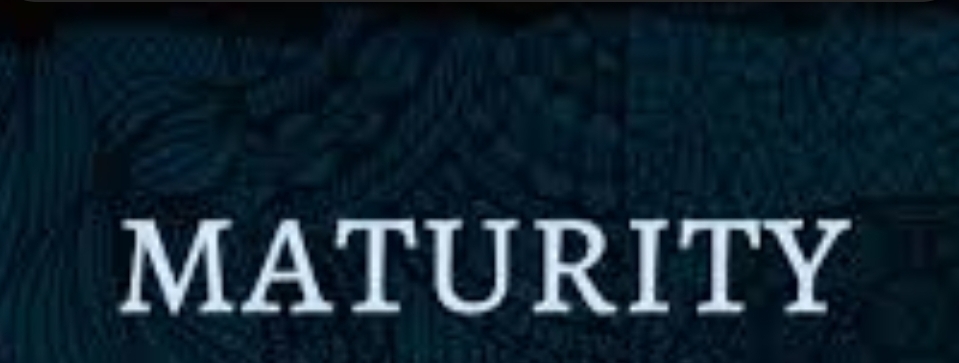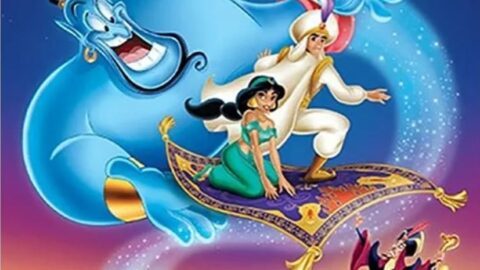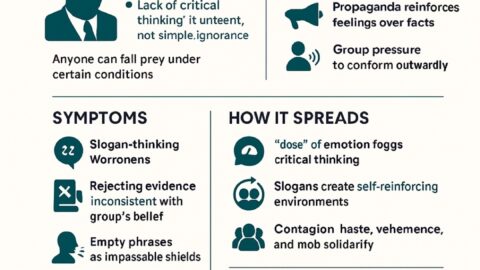“Most people don’t grow up. Most people age. They find parking spaces, honor their credit cards, get married, have children, and call that maturity. What that is, is aging.” – Maya Angelou
What is Maturity? Beyond Aging and Into Wisdom
Maya Angelou’s quote suggests that many people confuse aging with true maturity—that merely going through life’s expected milestones (finding a job, paying bills, starting a family) does not necessarily mean one has matured.
So, what is maturity?
Maturity is not just aging, but growing in wisdom, emotional depth, and moral understanding. It involves developing different intelligences, learning from experiences, and striving to live a virtuous, meaningful life.
The Core Aspects of True Maturity
Emotional Maturity: Mastering the Self
- The ability to regulate emotions, rather than being controlled by them.
- Accepting life’s hardships without bitterness or victimhood.
- Cultivating empathy and understanding for others.
- Learning to respond rather than react.
Example: A mature person does not lash out in anger but instead seeks to understand before judging.
Intellectual Maturity: Seeking Wisdom & Growth
- Lifelong curiosity and the pursuit of knowledge across multiple intelligences (emotional, moral, social, spiritual, etc.).
- Recognizing one’s own biases and limitations.
- Willingness to change perspectives when presented with new evidence.
Example: A mature thinker does not stubbornly cling to beliefs out of pride but instead values truth over ego.
Moral & Ethical Maturity: Living Virtuously
- Developing a strong moral compass, not just following societal norms.
- Understanding the consequences of one’s actions on a deeper level.
- Taking responsibility for one’s choices and their impact on others.
Example: A mature individual doesn’t just obey laws because they exist but because they understand and value justice.
Social & Relational Maturity: Building Meaningful Connections
- Learning how to communicate honestly and kindly.
- Prioritizing authentic relationships over superficial validation.
- Balancing individual desires with collective well-being.
Example: A mature friend does not just seek validation but fosters relationships based on mutual growth and support.
Is Maturity Connected to Wisdom and Virtue?
Yes, true maturity aligns closely with wisdom and virtue.
Wisdom Through Multiple Intelligences
Maturity develops when a person cultivates various types of intelligence, including:
- Emotional intelligence (understanding oneself and others)
- Moral intelligence (distinguishing right from wrong)
- Social intelligence (navigating human interactions with integrity)
- Spiritual intelligence (seeking deeper meaning beyond material success)
- Cultural intelligence (understanding different perspectives and traditions)
A person who intentionally develops these intelligences is more likely to act with wisdom and maturity.
Virtue as the Path to Maturity
Philosophers from Aristotle to Marcus Aurelius have argued that true maturity is rooted in virtue. Living virtuously requires:
- Self-discipline (choosing long-term fulfillment over short-term pleasure)
- Courage (standing by one’s values despite adversity)
- Humility (acknowledging one’s flaws and striving to improve)
- Compassion (recognizing the dignity of others)
A mature person does not simply follow rules or traditions blindly—they live by principles they have examined, tested, and chosen with wisdom.
The Danger of Confusing Maturity with Societal Expectations
Many people assume maturity means:
- Having a stable job, a house, and financial security.
- Getting married and raising children.
- Following social norms without question.
While these are important aspects of life, they do not guarantee wisdom, depth, or true maturity. Many people go through the motions of adulthood without deep self-reflection, personal growth, or a strong moral foundation.
Maturity is not just about survival—it is about how deeply you engage with life.
How to Cultivate True Maturity
Maturity is a lifelong pursuit. Here are some ways to actively develop it:
Engage in Lifelong Learning
- Read, explore, and challenge your understanding of the world.
- Learn about different forms of intelligence and how they shape human interactions.
Practice Emotional & Moral Discipline
- Develop self-awareness to recognize and improve personal weaknesses.
- Make choices based on virtue and integrity, not social pressure.
Seek Meaning, Not Just Success
- Prioritize character growth over material achievements.
- Engage in deep, meaningful conversations and relationships.
Embrace Change & Uncertainty with Wisdom
- A mature person accepts life’s uncertainties with courage and curiosity.
- They do not cling to rigid beliefs or identities but evolve with deeper understanding.
Maturity as the Art of Living Well
Maturity is not about age, status, or material success—it is about wisdom, self-awareness, and a commitment to living virtuously. It involves mastering multiple intelligences, thinking deeply, and making choices that reflect character rather than conformity.
Maya Angelou’s insight challenges us to ask: Are we truly growing, or just aging? The answer lies in whether we actively seek wisdom, develop character, and strive for a life of depth and meaning.
“It is too difficult to think nobly when one thinks only of earning a living.” – Jean-Jacques Rousseau
Beyond Survival: True Maturity and the Pursuit of Noble Thought
Maya Angelou’s quote critiques the common misconception that adulthood equals maturity, when in reality, many people simply go through life’s motions without deep personal growth. This idea aligns with Jean-Jacques Rousseau’s assertion that the struggle for mere survival can suppress higher thinking and noble pursuits.
Both statements reveal a fundamental issue in modern society—that many people become trapped in a cycle of economic survival, routine obligations, and social expectations, mistaking aging for wisdom and survival for fulfillment.
The Burden of Survival vs. Noble Thought
Rousseau highlights the mental and emotional exhaustion of economic struggle—when people are constantly concerned with earning a living, they lack the time, energy, and mental space to think philosophically, creatively, or critically.
- Survival Mode Mentality: Many people are stuck in jobs they dislike, living paycheck to paycheck, and making decisions based on immediate needs rather than personal fulfillment or societal contribution.
- Suppression of Higher Thought: When life is reduced to financial security and daily obligations, there’s little room for intellectual curiosity, deep self-reflection, or the pursuit of truth.
Example: A factory worker or corporate employee who works long hours may lack the energy or opportunity to study philosophy, engage in activism, or pursue creative passions.
This economic trap leads to passivity—a life dictated by external demands rather than inner purpose.
The Economic Trap of the Working Class
Angelou and Rousseau’s insights apply especially to the modern workforce, where people are conditioned to:
- Chase financial stability over personal growth
- Follow societal scripts (get a degree, get a job, pay bills, retire)
- Measure success by material wealth rather than wisdom
Public education systems—often more focused on producing obedient workers rather than independent thinkers—reinforce this system. Instead of encouraging multiple intelligences (emotional, moral, creative, spiritual, etc.), mainstream education prioritizes:
- Standardized testing
- Job-oriented skills
- Compliance over curiosity
Example: A child may be highly gifted in artistic or philosophical thinking but is pushed toward a more “practical” career because society values financial stability over intellectual exploration.
As a result, many adults mistake external achievements (a house, a stable job, a family) for maturity, rather than seeking inner growth and wisdom.
The Impact on Society
When most people are too busy surviving to think critically, the consequences ripple through society:
- Weak Political Engagement: People don’t have time to research policies, engage in civic discussions, or demand better leadership. This aligns with James A. Garfield’s warning that a corrupt government is a reflection of a passive, uninformed public.
- Decline in Ethical Standards: If people prioritize financial success over moral character, society moves toward materialism, corruption, and moral relativism.
- Loss of Creativity & Innovation: The greatest thinkers—Socrates, Da Vinci, Tesla—were able to innovate because they had the time and freedom to question, explore, and experiment. A society that discourages deep thinking limits progress.
Example: In the Renaissance, wealthy patrons funded artists and philosophers, allowing them to create groundbreaking works. Today, many creative and philosophical minds are stifled by economic demands.
Modern Relevance: Why This Still Happens Today
Despite technological progress, many modern individuals still struggle under the same constraints Rousseau described centuries ago.
- Work culture prioritizes productivity over well-being.
- Social media rewards surface-level engagement over deep intellectual discussion.
- Education remains focused on test scores and employability rather than holistic growth.
Even those with wealth and success often find themselves in a different kind of trap—the corporate rat race, where financial ambition replaces intellectual and spiritual fulfillment.
Example: A high-earning executive may have financial freedom but is too consumed by career pressures to reflect on their personal values or contribute meaningfully to society.
Possible Solutions: How to Escape the Cycle
Both Angelou and Rousseau imply that the solution is not just financial security, but a shift in priorities. How can individuals and society break free from this cycle?
Redefine Maturity as Wisdom, Not Just Responsibility
- Prioritize personal growth, character, and learning over external achievements.
- Recognize that true maturity involves intellectual curiosity, emotional intelligence, and ethical decision-making.
Foster Multiple Intelligences in Education
- Move away from job-centered schooling to holistic learning—including emotional, creative, and philosophical intelligence.
- Encourage critical thinking, ethical reasoning, and self-awareness from an early age.
Create Economic Systems That Support Intellectual & Creative Freedom
- Reduce workweeks, or alternative labor structures could free people to pursue knowledge and self-improvement.
- Investment in public libraries, art, philosophy, and civic education could counteract the dominance of economic survivalism.
Prioritize Deep Thinking in Everyday Life
- Question societal expectations rather than blindly following them.
- Make time for self-reflection, reading, philosophical discussion, and artistic expression.
Example: Someone stuck in a corporate job could start by dedicating time to personal study, joining discussion groups, or engaging in creative hobbies.
Choosing Growth Over Mere Existence
Maya Angelou and Jean-Jacques Rousseau expose a fundamental problem in society—that many people live mechanically, prioritizing survival and material success over intellectual and moral development. This stifles noble thought, weakens societies, and leaves individuals feeling unfulfilled despite external achievements.
True maturity is not just aging, earning a paycheck, or following societal scripts—it is the conscious pursuit of wisdom, virtue, and deeper understanding.
The challenge, then, is to break free from survival mode and actively cultivate a life of meaning, thoughtfulness, and genuine growth.
The Death of Growth: Living Without Truly Living
Benjamin Franklin’s quote—“Many people die at twenty-five and aren’t buried until they are seventy-five”—perfectly aligns with Maya Angelou’s and Jean-Jacques Rousseau’s critiques of modern society. Together, these quotes form a powerful commentary on the way economic survival, societal expectations, and intellectual stagnation keep people from truly living.
Franklin suggests that by age 25, many people have already lost their curiosity, ambition, and passion for deeper meaning. While they continue to exist physically, their minds and spirits have stopped growing, trapped in routines, expectations, and external obligations.
This ties directly into Rousseau’s warning that economic survival stifles noble thought and Angelou’s idea that most people merely age rather than mature.
The “Death” at 25: The Loss of Passion, Curiosity, and Growth
What happens around age 25?
- Societal Pressures Intensify: People are expected to “settle down”—secure a job, pay bills, and conform to social norms.
- The Education System Ends: The structured learning of childhood and young adulthood is replaced with work, responsibilities, and repetitive routines.
- Dreams are Abandoned for Practicality: The creative, idealistic ambitions of youth are often replaced by survival concerns—paychecks, debt, and stability.
- Curiosity is Replaced by Complacency: Many stop questioning, stop seeking knowledge, and stop growing once they enter the workforce.
Example: A college graduate once passionate about philosophy, art, or science might abandon those pursuits entirely in favor of a corporate job that pays the bills but offers no personal fulfillment.
This is where intellectual and spiritual “death” begins—when people stop seeking, stop questioning, and stop evolving.
The Routine of Existence vs. True Living
Most people don’t live—they merely exist.
- They follow schedules.
- They accumulate possessions.
- They meet society’s expectations.
- But they don’t grow, explore, or challenge themselves intellectually or spiritually.
This is what Angelou criticizes as aging instead of maturing. People go through life’s motions—getting married, paying bills, and retiring—but without ever truly engaging with life in a meaningful, reflective, or transformative way.
Rousseau’s insight explains why this happens:
- People are consumed by economic survival.
- Work takes priority over thought.
- Financial and social pressures leave little room for intellectual curiosity.
The Tragic Consequence: A Society of the Walking Dead
When most people “die” mentally and spiritually in their mid-20s but live physically until their 70s or 80s, we create a society of passive, uninspired individuals.
- People work, but they don’t think.
- People consume, but they don’t create.
- People follow, but they don’t question.
- People exist, but they don’t truly live.
This has massive consequences:
- Political and Social Apathy: As James A. Garfield warned, weak citizens lead to weak governments. People are too distracted to engage deeply in civic and political life.
- Moral and Ethical Decline: Without noble thought, society prioritizes material success over character and virtue.
- Innovation and Creativity Stagnate: Great thinkers, artists, and leaders emerge only when people question, experiment, and explore. A society that discourages these things breeds mediocrity.
Example: Historically, major revolutions and innovations—such as the Renaissance or the Civil Rights Movement—were driven by people who refused to merely “exist” but instead actively challenged the status quo.
Breaking Free: How to Truly Live
To escape this slow “death,” one must actively reject societal programming and seek continuous growth.
Develop Multiple Intelligences
Instead of just focusing on financial intelligence or technical skills, people should cultivate:
- Emotional Intelligence: Understanding themselves and others deeply.
- Moral Intelligence: Acting with integrity and ethical purpose.
- Creative Intelligence: Engaging in art, philosophy, and innovation.
- Spiritual Intelligence: Seeking deeper meaning in life.
Prioritize Lifelong Learning
- Read widely (philosophy, history, science).
- Engage in meaningful conversations and debates.
- Travel and expose yourself to new ideas and cultures.
- Question societal norms and conventional wisdom.
Resist the Economic Trap
- Avoid defining success solely by career or income.
- Create a lifestyle that allows for intellectual and creative pursuits.
- Find work that aligns with personal passion and growth.
Redefine Maturity
- Maturity is not about paying bills—it’s about wisdom, self-awareness, and virtue.
- True adulthood means seeking truth, engaging in deep thought, and contributing meaningfully to society.
Conclusion: Choose Growth Over Complacency
Benjamin Franklin, Maya Angelou, and Jean-Jacques Rousseau all reveal a fundamental truth: most people stop truly living far too early.
- They conform instead of question.
- They survive instead of thrive.
- They obey instead of think.
But this fate is not inevitable. Each individual has the power to choose growth, curiosity, and intellectual freedom—to live fully and meaningfully rather than just passively aging until death.






